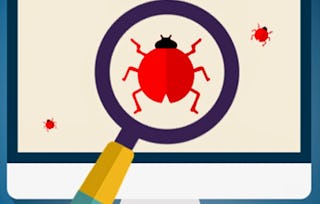After completing this course, you will have an understanding of the fundamental principles and processes of software testing. You will have actively created test cases and run them using an automated testing tool. You will being writing and recognizing good test cases, including input data and expected outcomes.

Introduction to Software Testing

Introduction to Software Testing
This course is part of Software Testing and Automation Specialization


Instructors: Sanjai Rayadurgam
128,255 already enrolled
Included with
825 reviews
Recommended experience
What you'll learn
You will gain an understanding of the theory of testing.
You will practice writing tests for a variety of quality intent, including code coverage, defect finding, and statistical testing.
You will develop test plans to guide the testing stage of the software development lifecycle.
You will create defect reports to provide transparency and understanding to supervisors, colleagues, and users.
Skills you'll gain
Details to know

Add to your LinkedIn profile
See how employees at top companies are mastering in-demand skills

Build your subject-matter expertise
- Learn new concepts from industry experts
- Gain a foundational understanding of a subject or tool
- Develop job-relevant skills with hands-on projects
- Earn a shareable career certificate

There are 4 modules in this course
In this module, you will be introduced to the basics of testing, especially the variety of terminology to be used through the rest of the course.
What's included
6 videos1 reading5 assignments1 programming assignment2 discussion prompts
In this module, you will investigate a variety of testing principles, models of testing, and types of systematic testing strategies.
What's included
8 videos8 assignments2 discussion prompts
In this module, you will learn about the social aspects of testing. We will learn about test plans, testing status reports, and defect reporting.
What's included
10 videos10 assignments1 peer review
In this module, you will learn about writing unit tests and gain practice in writing these tests through three coding assignments, each with additional testing sophistication.
What's included
5 videos3 assignments3 programming assignments
Earn a career certificate
Add this credential to your LinkedIn profile, resume, or CV. Share it on social media and in your performance review.
Instructors

Offered by
Explore more from Software Development

University of Minnesota

University of Minnesota

University of Minnesota
Why people choose Coursera for their career

Felipe M.

Jennifer J.

Larry W.

Chaitanya A.
Learner reviews
- 5 stars
62.90%
- 4 stars
21.81%
- 3 stars
7.15%
- 2 stars
2.54%
- 1 star
5.57%
Showing 3 of 825
Reviewed on Sep 7, 2021
Quite challenging yet very educating course. The practice assignments are very good hands-on example and provides insight into testing
Reviewed on Jan 2, 2021
Expected knowledge of programming and use of Eclipse is more than I expect for this course. I cannot find where I can donwload the sources mentioned in the week 4 videos.
Reviewed on Jan 19, 2022
Course itself is very good. Minus one star for assignments where without forum help you are not capable to gain 10/10, even though tests are successful on your Pc

Open new doors with Coursera Plus
Unlimited access to 10,000+ world-class courses, hands-on projects, and job-ready certificate programs - all included in your subscription
Advance your career with an online degree
Earn a degree from world-class universities - 100% online
Join over 3,400 global companies that choose Coursera for Business
Upskill your employees to excel in the digital economy
Frequently asked questions
To access the course materials, assignments and to earn a Certificate, you will need to purchase the Certificate experience when you enroll in a course. You can try a Free Trial instead, or apply for Financial Aid. The course may offer 'Full Course, No Certificate' instead. This option lets you see all course materials, submit required assessments, and get a final grade. This also means that you will not be able to purchase a Certificate experience.
When you enroll in the course, you get access to all of the courses in the Specialization, and you earn a certificate when you complete the work. Your electronic Certificate will be added to your Accomplishments page - from there, you can print your Certificate or add it to your LinkedIn profile.
Yes. In select learning programs, you can apply for financial aid or a scholarship if you can’t afford the enrollment fee. If fin aid or scholarship is available for your learning program selection, you’ll find a link to apply on the description page.
More questions
Financial aid available,
¹ Some assignments in this course are AI-graded. For these assignments, your data will be used in accordance with Coursera's Privacy Notice.

